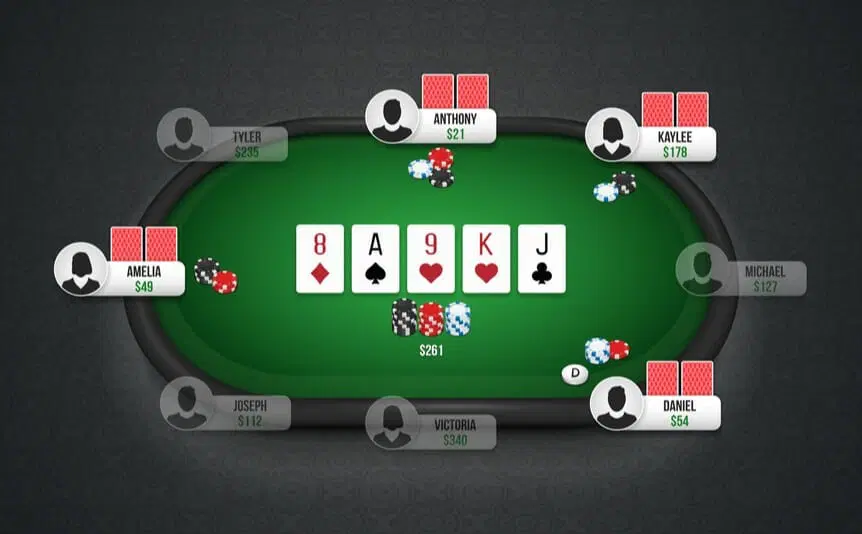Building Mental Endurance in Poker
Poker produces intense emotional reactions which range from the exhilaration of consecutive wins to deep sadness from challenging defeats. Developing mental resilience skills will help you sustain concentration and choose optimal actions during your poker sessions.
Resilience requires the ability to overcome difficulties and simultaneously demands effective fatigue management with the maintenance of positivity. These strategies will teach you how to build resilience in poker.
Get a good night’s sleep
Playing poker demands mental energy which gets depleted when players sit at the table for extended periods. Sleep patterns that are inadequate contribute to fatigue so players must work to enhance their sleep routines.
Players who ensure enough rest before a crucial tournament or high-pressure session can maintain emotional control and avoid hasty decisions when under stress.
The mental energy of players depletes rapidly when facing emotional stressors like bad beats or disappointing outcomes which results in expensive errors. Building mental endurance through effective pressure management strategies can transform performance at tournament final tables while mindfulness practices and proper sleep and nutrition routines demonstrate success in this endeavor.
Eat a healthy diet
Even though poker players do not engage in physical exercise as athletes in traditional sports do, the game requires intense mental focus and concentration. A balanced diet with “brain foods” such as salmon, walnuts and chia seeds boosts cognitive function and fights brain fatigue to support prolonged sessions.
Whole grains and legumes contain complex carbohydrates which produce energy slowly to prevent concentration disruptions caused by abrupt blood sugar increases. A balanced diet consisting of lean protein sources and sufficient hydration supports cognitive and muscular endurance while consuming organ meats like liver boosts vitamin and mineral intake for optimal health benefits. Healthy eating and exercise routines during poker games help players maintain peak physical and mental performance.
Exercise regularly
The strategic nature of poker demands fast thinking and focused decision-making from players. A player who feels tired or lacks concentration struggles to stay alert throughout extended poker sessions and make sound decisions. Regular physical activity enhances mental capacity enabling players to maintain focus and choose better during extended strategic games.
Physical fitness supports good mental health which enables players to keep their minds open throughout extended sessions. Research evidence supports exercise as a means to improve sleep quality which is vital for achieving optimal performance levels.
Leading poker players develop resilience by using multiple techniques that involve routine self-reflection exercises combined with physical workouts. Incorporate these tips into your daily routine to boost your mental stamina for superior poker performance over time. Access our detailed poker psychology series which includes 6 videos and more than 5 hours of content HERE!
Take breaks
Mental fatigue reduces players’ concentration and ability to make strategic decisions which affects both their focus and decision-making skills. Mental fatigue stems from multiple sources which include extended periods at the poker table combined with unhealthy eating habits and insufficient physical exercise.
Understanding mental fatigue helps players keep their concentration and prevents burnout. A player might display heightened emotional responses and display aggressive behavior during play while struggling to maintain attention to the game.
In poker tournaments breaks serve as essential intervals that allow players to restore their energy levels and mental focus. To make the most of breaks players need to use them as opportunities to reset their minds while refocusing their attention on the game and reviewing their strategy rather than spending time chatting or reminiscing about previous hands.
Stay positive
The prolonged duration of poker games demands continuous focus and strategic thinking which can exhaust even the most committed players. Players who maintain positivity in both their gameplay and personal life recover faster from bad beats since it reduces emotional stress and keeps them goal-oriented.
To recover motivation in poker you should manage external stress factors by ensuring proper sleep patterns and eating habits while maintaining a consistent daily routine. By concentrating on the positive elements of your poker game and celebrating your achievements you can receive an essential energy boost when you need it; maintain self-awareness and monitor your progress frequently to enable essential adjustments.




